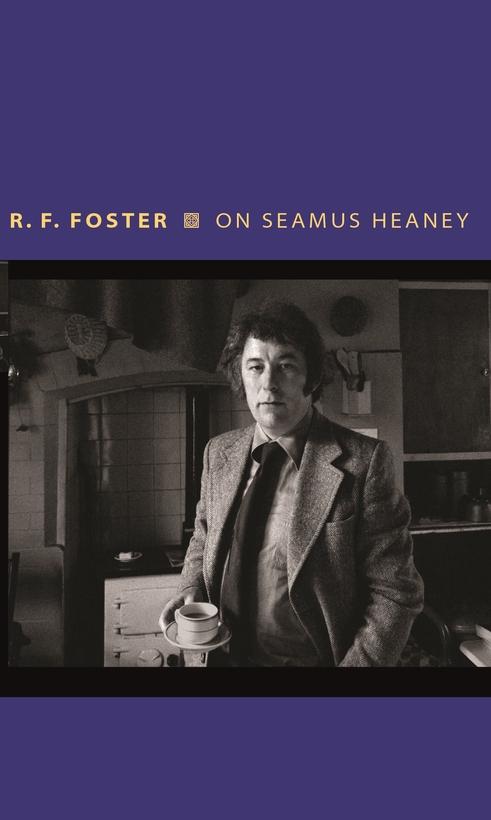To write a book about someone you knew, however slightly, is a journey of discovery—perhaps most of all for a historian. I read Seamus Heaney’s work from the early days, and was dazzled by the sharpness and quiddity of the first books; transfixed by the savage panache of North, in 1975; totally absorbed by Station Island, in 1984; and powerfully moved by the late books, where the lines are distilled to an ethereal thinness that never becomes vaporous, and the spirit world of memory pervades everything. By then I knew Heaney as a man of tremendous wit, insight, and empathy, and felt his loss in 2013 bitterly.
But reading his work against early unpublished drafts, looking at his correspondence, and reflecting on the historical upheavals he lived through in Ireland (both in the North and the South, if expressed in different ways), I began to understand more of the pressures which he resisted. These took the form first of tribe and place, and later (especially post-Nobel Prize) of fame and celebrity. I was struck by the way he channelled the raw anger of first-draft poems about Irish antagonisms into a more effective and universal form, and how brilliantly he refined a thought into a phrase that combined clarity and mystery.
This is a Yeatsian achievement, and when confronting the blend of elegance and grit with which Heaney kept his individual integrity, while wielding an unparalleled and benevolent authority within Irish culture, I kept thinking of Auden’s feline elegy on the death of Yeats in 1939. Auden celebrated Yeats’s overwhelming gift, and the loss to the world of a great and generous spirit at a time when universal cultural values were drastically threatened. But he also pinpointed Yeats’s “silliness,” and his seduction by the admiration of “the parish of rich women,” concluding in the end that such foibles mattered very little. Above all, Auden posited the question of why poetry, which “makes nothing happen,” is yet such an essential element of civil society.
Heaney channelled the raw anger of first-draft poems about Irish antagonisms into a more effective and universal form.
Heaney was never silly, and he knew how to keep a courteous distance from the blandishments of flattery. He also, as I realized more and more clearly, kept a firm eye on Yeats, while firmly refusing the easy identifications between the two poets posited by reviewers from his first fame onwards (and made all the more inevitable after he followed his great predecessor in winning the Nobel). An early Heaney essay was called “Yeats as an Example?” and the telling query-mark never quite disappeared. He wrote about Yeats with passion and precision. I had heard his great lecture given as Professor of Poetry in Oxford, on Yeats’s and Larkin’s contrasting approaches to death; here as in many ways, he was on Yeats’s side. And the self-interrogations of Station Island strike assonances with sequences of Yeats’s Meditations in Time of Civil War.
After immersing myself in Heaney’s work and life, I came to think that, though he rejected simplistic attempts to categorize him as Yeats’s successor, he stands powerfully in the Yeatsian tradition; perhaps most of all in the way that “the spirit level” pervades even his most earthily-rooted poems. This, along with an uncompromising honesty of utterance, helped to establish his unique position in Irish life, and the trust which an enormous readership reposed in him. Analyzing Heaney’s relationship with his readers also brought home to me the position writers occupy in Irish life, where they are accorded far more attention and influence than literary intellectuals receive in Britain (there are closer parallels with France, or Poland). Short as my book is, the five years spent writing it helped me understand how a great poet—like Yeats, like Heaney—can perform the miracle of, in Heaney’s words, “gleaning the unsaid off the palpable.” And that poetry can, in fact, make things happen.
R.F. Foster’s On Seamus Heaney is out now from Princeton University Press
